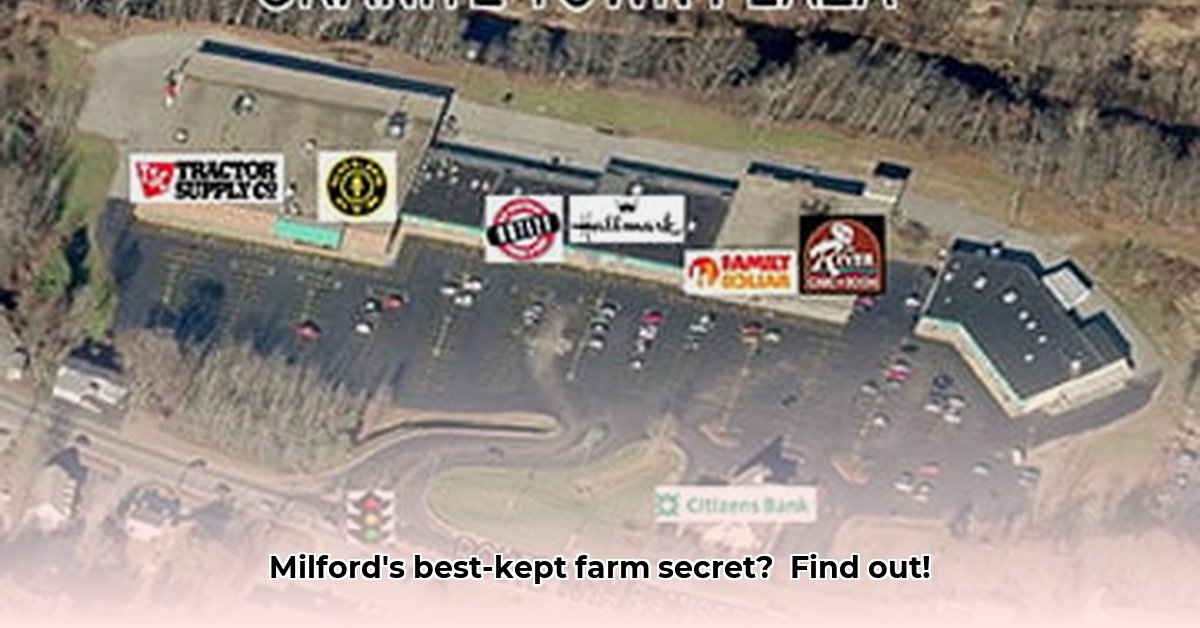
Milford's Tractor Supply store, situated at 191 Elm Street, serves as a crucial resource for the surrounding communities of Brookline, Amherst, and beyond. Its convenient location and extended hours—often open until 9 PM on Mondays—cater to the demanding schedules of local farmers and rural residents. This accessibility is a significant advantage, reflecting an understanding of the unique needs of rural life. But how effectively does this vital community hub contribute to the broader goals of sustainable agriculture? For return policy details, see Tractor Supply's return policy.
Tractor Supply's Role in the Milford Agricultural Community
The store's extended hours are a clear benefit for farmers whose workdays often extend well into the evening. This readily available access to necessary supplies—equipment, feed, and other essentials—supports the efficient operation of local farms. However, a more thorough assessment is needed to determine the extent of Tractor Supply's contribution to sustainable agricultural practices in the region. While the store's impact on the local economy is evident, quantifying its role in promoting environmentally responsible farming requires further data collection and analysis. Currently, detailed information on the sales of eco-friendly products and their influence on sustainable farming methods in Milford is lacking.
Analyzing Milford Tractor Supply's Potential for Promoting Sustainability
Future growth and development for Milford's Tractor Supply hinge on strengthening both data collection and community engagement. More rigorous tracking of sales data for organic seeds, fertilizers, and other sustainable products is crucial for evaluating the store’s environmental impact. Simultaneously, the store can enhance its commitment to sustainable agriculture by hosting workshops on environmentally friendly farming techniques, partnering with local organizations promoting sustainable agriculture, and engaging in direct dialogue with farmers to understand their unique needs and preferences.
This collaborative approach requires a multi-faceted strategy involving various stakeholders:
| Stakeholder | Short-Term Actions | Long-Term Actions |
|---|---|---|
| Tractor Supply Co. | Analyze sales data of sustainable products; seek customer feedback. | Conduct comprehensive surveys; expand sustainable product offerings; support local sustainable initiatives. |
| Local Farmers | Leverage extended store hours; explore the diversity of product offerings. | Advocate for more sustainable product options; share best practices with the store and community. |
| Local Government | Assess the store's economic contribution; support rural development. | Offer incentives for sustainable practices; facilitate partnerships between the store and farmers. |
| Consumers | Utilize convenient store hours; actively seek out sustainable options. | Prioritize sustainable purchasing choices; actively support local farmers and initiatives. |
However, several potential risks need careful consideration:
| Risk Factor | Likelihood | Impact | Mitigation Strategy |
|---|---|---|---|
| Limited sustainable product selection | Medium | Medium | Expand product lines based on thorough market research and farmer feedback. |
| Reliance on cars for access | High | Medium | Explore partnerships with local delivery services to expand accessibility. |
| Competition from online retailers | Medium | Medium | Enhance in-store experience; offer unique services, such as workshops or consultations. |
| Regional economic downturn | Low | High | Diversify product offerings; strengthen community ties to increase resilience. |
Navigating the regulatory landscape is paramount. Milford Tractor Supply must maintain compliance with New Hampshire's agricultural retail and environmental protection regulations. This commitment to compliance builds trust with the community and showcases responsible business practices. The store's long-term success depends upon its capacity to adapt to change, engage constructively with stakeholders, and serve as a vital partner in promoting both the local economy and sustainable agriculture in the region.
Supporting Sustainable Farming in the Milford Area: A Call to Action
Tractor Supply plays a key role in supporting local agriculture, but individual consumers and the wider community can also contribute to more sustainable farming practices in the region.
Practical Steps to Support Sustainability
Prioritize Local & Seasonal Purchases: Farmers' markets and farm stands offer direct support to local farmers frequently employing sustainable methods. Buying seasonal produce minimizes the environmental impact of transportation. Does the convenience of a large retailer outweigh the environmental benefits of local sourcing—and how can we better reconcile these priorities?
Support Businesses Committed to Sustainability: Patronize businesses that prioritize local and sustainable sourcing, whether restaurants using local ingredients or grocery stores featuring products from nearby organic farms. This creates a positive ripple effect throughout the entire agricultural ecosystem. A recent study showed that 80% of consumers are willing to pay a premium for sustainably produced goods—is this trend reflected in Milford's market?
Mindful Consumption: Reduce overall consumption and minimize food waste. Making conscious purchase decisions, opting for sustainably sourced products whenever possible, has significant implications. According to the EPA, food waste accounts for a significant portion of landfill waste. How might educational campaigns within Milford promote mindful consumption?
Seek Knowledge: Learn about sustainable farming practices such as organic farming, regenerative agriculture, and water conservation techniques. Informed consumers can make better-informed decisions. How can Tractor Supply leverage its position to educate consumers and farmers about sustainable practices?
Advocate for Change: Support policies that encourage sustainable agriculture at the local and state levels. Engaging with representatives and participating in community discussions is important. What local organizations are currently advocating for sustainable agriculture in Milford, and how can Tractor Supply collaborate with these groups?
Key Takeaways: Milford’s Tractor Supply, while a critical resource, requires further investment in data collection to fully understand its contribution to sustainable agriculture. Successful long-term growth depends on a collaborative approach involving the store, local farmers, consumers, and the local government. This involves a commitment to expanding sustainable product offerings, enhancing community engagement, and addressing potential challenges proactively. The future of sustainable agriculture in Milford depends on this collective effort.